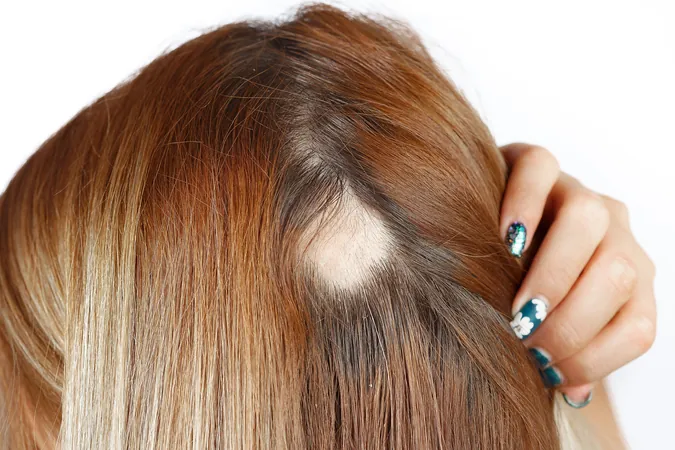
Asthma Linked to Increased Risk of Severe Alopecia Areata: New Research Reveals Shocking Findings
2025-01-15
Author: Sarah
Groundbreaking Research Findings
Comorbid bronchial asthma significantly raises the risk of experiencing early onset, severe, or prolonged alopecia areata (AA), according to groundbreaking research published in the journal Allergy. This study uncovers a compelling connection between chronic inflammatory diseases and the clinical features of AA, particularly focusing on how these conditions can adversely affect the duration and severity of hair loss.
Understanding Alopecia Areata
Alopecia areata is an unpredictable autoimmune disorder marked by sudden, non-scarring hair loss on the scalp and body. Its erratic nature can differ from one person to another, and it is often observed alongside other chronic inflammatory diseases, leaving many patients searching for answers about their condition. Surprisingly, prior research has not adequately explored how these inflammatory diseases might influence the specific characteristics of AA.
Study Design and Patient Population
The study engaged a substantial group of 2,657 patients from Central Europe, who were recruited from outpatient clinics, dermatology specialists, and AA support groups. Data showed that over 53% of AA patients reported at least one comorbid chronic inflammatory disease. Among these, bronchial asthma was noted in 13.4% of patients, while atopic dermatitis and rhinitis were prevalent in 26.7% of cases. Additionally, about 17.4% had at least one non-atopic comorbidity, including conditions such as Hashimoto's thyroiditis and vitiligo.
Significance of Findings
Leading the research, Buket Basmanav, MSc, highlighted that this analysis is the most extensive of its kind, enabling an in-depth understanding of how asthma and other conditions correlate with AA's clinical features. "Our findings support the hypothesis that atopic diseases could trigger AA onset in susceptible patients," she stated.
Clinical Implications of Asthma in AA
Remarkably, the results indicated that patients with conditions like bronchial asthma, atopic dermatitis, and Hashimoto's thyroiditis experienced earlier onset and more severe symptoms of AA compared to those without these comorbidities. Specifically, bronchial asthma emerged as a stronger prognostic factor than other conditions like atopic dermatitis or rhinitis.
New Connections in Research
Dr. Annika Friedrich, a PhD student involved in the study, noted the unprecedented link established between asthma and AA's clinical features, stating this is the first study to demonstrate such significant associations.
Impact of Multiple Comorbidities
The research further suggests that individuals with a higher number of atopic comorbidities tend to present early onset and prolonged AA, with odds increasing incrementally for each additional inflammatory condition. Patients with one or two comorbid atopic diseases experienced an average onset age nearly 10 years earlier than those with isolated AA.
Call to Action for Better Monitoring
As a call to action, Regina C. Betz, PhD, emphasized the need for AA patients with chronic inflammatory comorbidities to receive closer clinical monitoring and timely intervention, which could lead to better management of their condition.
Conclusion and Future Directions
These compelling findings underscore the importance of understanding the interplay between asthma and alopecia areata, potentially opening new avenues for treatment and patient care strategies. As more evidence emerges, it's clear that comprehensive clinical approaches are needed to address the complexities of autoimmune conditions like alopecia areata.
 Brasil (PT)
Brasil (PT)
 Canada (EN)
Canada (EN)
 Chile (ES)
Chile (ES)
 Česko (CS)
Česko (CS)
 대한민국 (KO)
대한민국 (KO)
 España (ES)
España (ES)
 France (FR)
France (FR)
 Hong Kong (EN)
Hong Kong (EN)
 Italia (IT)
Italia (IT)
 日本 (JA)
日本 (JA)
 Magyarország (HU)
Magyarország (HU)
 Norge (NO)
Norge (NO)
 Polska (PL)
Polska (PL)
 Schweiz (DE)
Schweiz (DE)
 Singapore (EN)
Singapore (EN)
 Sverige (SV)
Sverige (SV)
 Suomi (FI)
Suomi (FI)
 Türkiye (TR)
Türkiye (TR)
 الإمارات العربية المتحدة (AR)
الإمارات العربية المتحدة (AR)